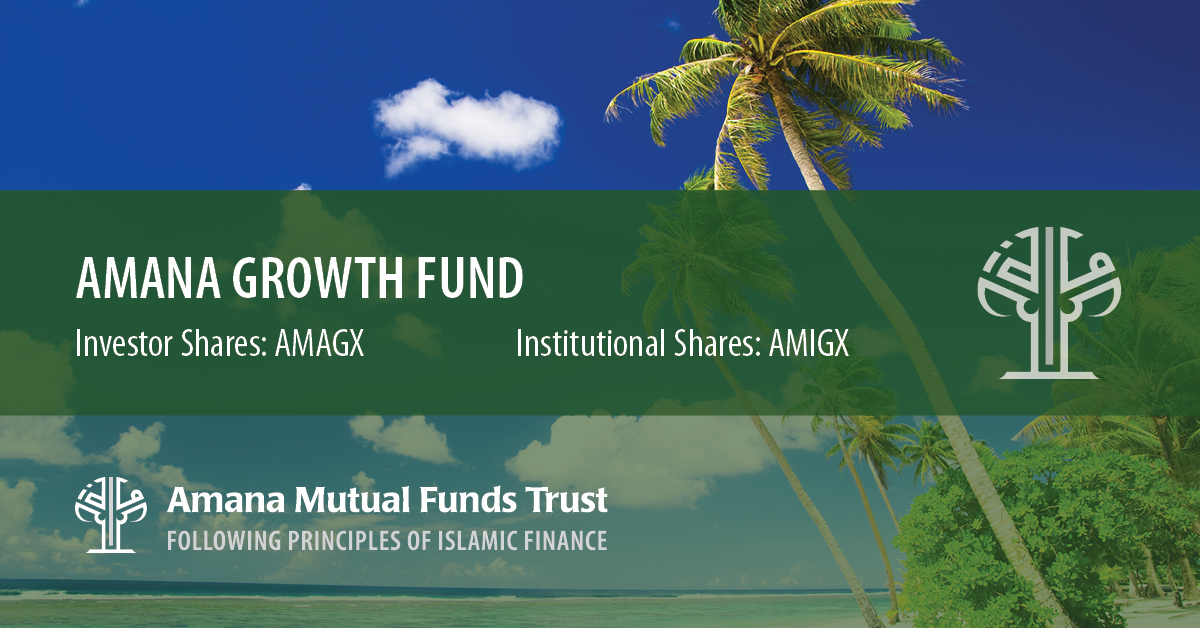The Amana Growth Fund is an actively managed mutual fund that primarily invests in US-based companies with a focus on large-cap growth stocks. The fund has a unique approach to investing, as it adheres to Islamic principles, which means it avoids companies involved in alcohol, tobacco, gambling, and other activities considered non-compliant with Islamic values. This article provides an overview of the Amana Growth Fund, including its investment strategy, performance, portfolio composition, fees, and risks.
Investment Strategy
The Amana Growth Fund’s investment strategy is based on a bottom-up approach, which means the fund’s investment decisions are made on the basis of individual companies’ fundamentals rather than macroeconomic factors. The fund invests in companies that it thinks will grow quickly, have a competitive edge, and have business models that will last. The fund’s investment approach is based on the following principles:

Focus on Large-Cap Growth Stocks
The Amana Growth Fund focuses primarily on large-cap growth stocks, which are companies with a market capitalization of more than $10 billion that have high growth potential. The fund believes that large-cap growth stocks offer attractive risk-adjusted returns and have the potential to generate superior long-term performance.
Adherence to Islamic Principles
The Amana Growth Fund adheres to Islamic principles, which means it avoids investing in companies that are involved in activities such as alcohol, tobacco, gambling, and pornography. The fund’s investment process involves a screening process that ensures compliance with Islamic principles.
Long-Term Investment Horizon
The Amana Growth Fund, has a long-term investment horizon, which means it invests in companies with a view to holding them for several years. The fund’s investment strategy is based on the belief that long-term investment in high-quality companies can generate superior returns.
Fund Performance
The Amana Growth Fund has a strong track record of performance, having consistently outperformed its benchmark, the S&P 500 Index, over the long term. Over the past ten years, the fund has generated an average annual return of 19.22%, compared to 16.49% for the S&P 500 Index. The fund’s year-to-date return as of February 28, 2023, is 4.85%.
The fund’s performance is driven by its focus on large-cap growth stocks and its adherence to Islamic principles. The fund’s investment process involves a rigorous screening process that ensures compliance with Islamic principles while identifying companies with strong growth prospects and competitive advantages. The fund’s long-term investment horizon allows it to ride out short-term volatility and focus on generating superior long-term returns.
Portfolio Composition
The Amana Growth Fund’s portfolio is composed primarily of large-cap growth stocks in the technology, healthcare, and consumer sectors. As of February 28, 2023, the fund’s top three holdings were Microsoft, Amazon, and Alphabet (Google), which together make up about 23% of the fund’s portfolio. The fund’s sector allocation is as follows:
- Technology: 36.9%
- Healthcare: 16.4%
- Consumer Services: 14.4%
- Industrials: 8.7%
- Financials: 7.2%
- Consumer Goods: 6.6%
- Communication Services: 5.8%
- Materials: 3.9%
- Utilities: 0.1%
The fund’s portfolio is diversified across multiple sectors and industries, which helps to reduce the risk of individual company or sector-related losses. The fund’s investment approach is based on identifying high-quality companies with strong growth prospects and competitive advantages, which helps to ensure that the portfolio is composed of companies with sustainable business models and long-term growth potential.
Fees and Expenses
The Amana Growth Fund has a relatively low expense ratio of 1.22%, which is below the industry average of 1.25%. The fund’s management fee is 0.99%, which is also below the industry average of 1.25%. The fund has no front-end or back-end sales charges, which means that investors can buy and sell shares without incurring additional costs.
In addition to the management fee, the fund incurs other expenses, including administrative expenses, transfer agent fees, and other operating expenses. These expenses are deducted from the fund’s assets, which means that they reduce the fund’s returns.
Risks
As with any investment, investing in the Amana Growth Fund involves certain risks. Putting money into the fund comes with a number of big risks, some of which are:
- Market Risk, The Amana Growth Fund is exposed to market risk, which means that its returns are influenced by broader market conditions. If the market experiences a downturn, the fund’s returns may suffer.
- Sector Risk The fund’s portfolio is heavily weighted towards the technology sector, which means that the fund is exposed to sector risk. If the technology sector experiences a downturn, the fund’s returns may be adversely affected.
- Concentration Risk The fund’s portfolio is concentrated in a relatively small number of companies, which means that the fund is exposed to concentration risk. If one of the fund’s top holdings experiences a significant decline in value, the fund’s returns may be adversely affected.
- Islamic Investment Risk, The Amana Growth Fund, adheres to Islamic principles, which means that it avoids investing in companies involved in activities considered non-compliant with Islamic values. This may limit the fund’s investment universe, which could negatively impact its returns.
Summary
- The Amana Growth Fund is an equity mutual fund that invests primarily in large-cap growth stocks.
- The fund follows Islamic principles and avoids investing in companies involved in activities considered non-compliant with Islamic values.
- The fund’s investment strategy focuses on identifying high-quality companies with strong growth prospects and competitive advantages.
- The fund has a proven track record of success, consistently outperforming both its benchmark index and other funds of a comparable nature.
- The fund has neither front-end nor back-end sales commissions, and its expense ratio is relatively modest.
- The fund is exposed to market risk, sector risk, concentration risk, and Islamic investment risk.
- Overall, the Amana Growth Fund is a solid investment option for investors seeking exposure to large-cap growth stocks while adhering to Islamic principles. The risks associated with the fund can be managed through diversification and a long-term investment horizon.
Video: Amana Investment Fund (AMAGX) Review
Conclusion
The Amana Growth Fund is a unique investment opportunity for investors who are looking for exposure to large-cap growth stocks while adhering to Islamic principles. The fund’s investment strategy, which focuses on identifying high-quality companies with strong growth prospects and competitive advantages, has a strong track record of performance.
While there are risks associated with investing in the fund, these risks are typical of any investment and can be managed through diversification and a long-term investment horizon. Overall, the Amana Growth Fund is a solid investment option for investors seeking exposure to large-cap growth stocks while adhering to Islamic principles.












